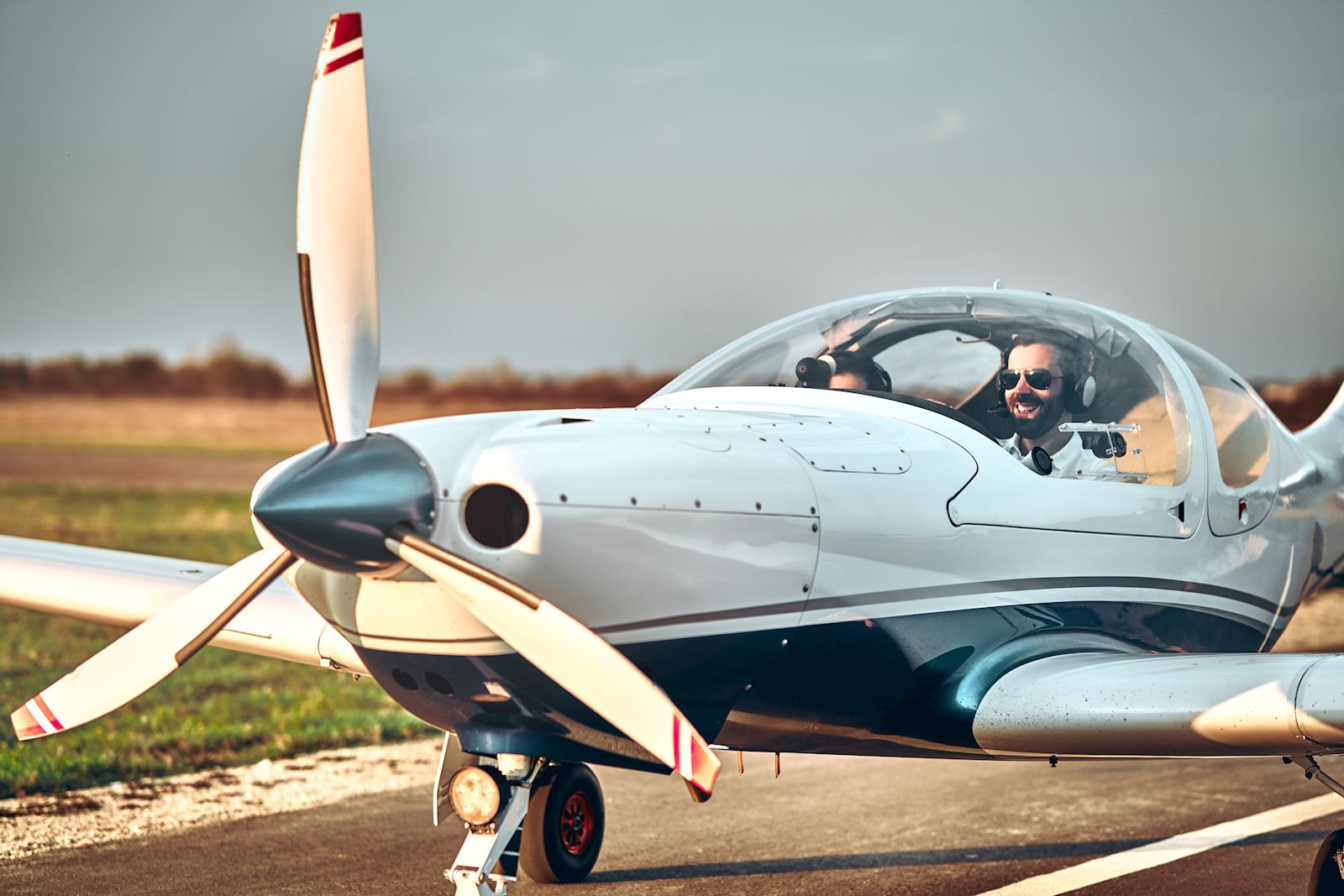Before hitting the skies, The Federal Aviation Administration (FAA) requires minimum safety standards for physical and mental conditions of all pilots. Dr. Samuel Gastineau, a family medicine physician at The Iowa Clinic - Indianola clinic, is an Aviation medical examiner.
What is an FAA Physical?
A FAA physical is the required medical exam needed for all pilots to obtain and maintain their pilot’s license. FAA physicals include a review of all past medical history, medications, and a complete physical examination. This may include checking things like:
- Vision and hearing. A minimum of 20/40 acuity in each eye and a 70-degree field of vision is required for flying safety.
- Blood pressure and pulse rate. It is important to have a stable blood pressure and pulse rate and maintain a blood pressure below 155/95 mmHg.
- Certain medical conditions. Some medical conditions may disqualify you from the ability to operate an aircraft safely. These can include epilepsy, heart conditions, diabetes requiring insulin, lung conditions and more.
- Mental and psychological stability. Ensuring mental and psychological stability is important to ensure there is no risk to anyone.
- Drug and alcohol testing. All drivers must undergo a drug and alcohol screening to test for common substance abuse, such as marijuana, amphetamines, and alcohol abuse. This also includes a urine dip test to look for sugar, protein, or blood in the urine, which is a required component of the FAA exam.
Who Needs an FAA Physical?
An FAA physical is required for an individual who operates an aircraft or individuals seeking certain pilot-related certifications or rating, such as a flight instructor, balloon operator etc.. The specific class of medical certificate required depends on the type of flight being conducted, which are separated into three classes.
- First-class – airline transport pilots.
- Second-class – commercial pilots, flight engineers, flight navigators, balloon pilots or air traffic control tower operators.
- Third-class – private pilot or recreational pilot.
How Often Do I Need an FAA Physical?
The frequency of which you need to renew your medical certification depends on what kind of medical certificate you have and for what class you are using your certificate for.
First Class
A first class medical certificate is valid for the remainder of the month of issue; plus
- 6 calendar months for operations requiring a first class medical certificate if the airman is age 40 or over on or before the date of the examination, or
- 12-calendar months for operations requiring a first-class medical certificate if the airman has not reached age 40 on or before the date of examination, or
- 12 calendar months for operations requiring a second class medical certificate, or
- 24 calendar months for operations requiring a third class medical certificate if the airman is age 40 or over on or before the date of the examination, or
- 60 calendar months for operations requiring a third-class medical certificate if the airman has not reached age 40 on or before the date of examination.
Second Class
A second-class medical certificate is valid for the remainder of the month of issue; plus
- 12 calendar months for operations requiring a second-class medical certificate, or
- 24 calendar months for operations requiring a third-class medical certificate, if the airman is age 40 or over on or before the date of the examination, or
- 60 calendar months for operations requiring a third-class medical certificate if the airman has not reached age 40 on or before the date of examination.
Third Class
A third-class medical certificate is valid for the remainder of the month of issue; plus
- 24 calendar months for operations requiring a third-class medical certificate, if the airman is age 40 or over on or before the date of the examination, or
- 60 calendar months for operations requiring a third-class medical certificate if the airman has not reached age 40 on or before the date of examination.
How Should I Prepare for my Physical?
Ahead of your FAA medical physical, pilots need to go online and fill out the MedXpress application and provide the provider’s office with their MedXpress number prior to the day of the appointment.
You can also prepare for your FAA physical by maintaining or improving your health, such as:
- Ensuring all medications are up to date.
- Have your eyes checked and prescription updated.
- Avoid heavy drinking and substance use.
- Manage your blood pressure.
- Consider quitting smoking.
How Much Does It Cost?
FAA physical costs will vary depending on the class:
- Class 1 – $250
- Class 2 – $200
- Class 3 – $200
- Digital Color Vision Exam – $50
What Happens If I Fail My Exam?
A pilot will never fail an exam the day of the physical. Should there be a medical condition that prevents issuing a certification that day, the pilot’s application will be deferred, and the FAA will work with the pilot to help them obtain their certificate.
To learn more about FAA physicals or to schedule an appointment, call 515.875.9520.


